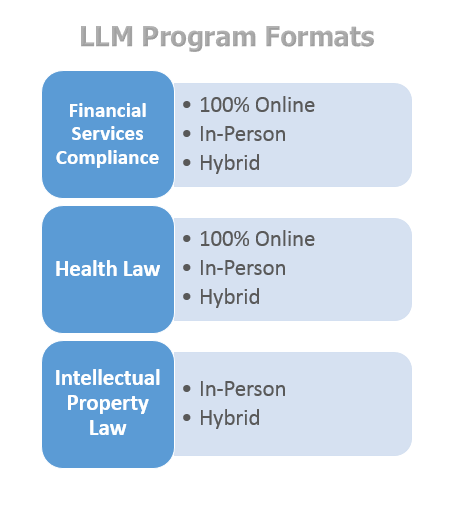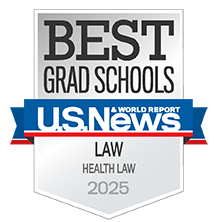

Seton Hall Law School offers an in-person, hybrid, or online Masters of Laws (LL.M.) degree in Health Law. The LL.M. degree provides attorneys with the opportunity to explore health law and policy or to focus more narrowly on courses designed for the lawyer planning to represent the health provider, payor, regulator, patient, and pharmaceutical companies.

The LL.M. degree program, whether taken in-person, online or a combination of both, enhances the knowledge and skills possessed by practicing health care attorneys, as well as those seeking to expand their practice to health care clients.
A candidate seeking admission to the LL.M. program must have a J.D. degree from a law school that is approved by the Section of Legal Education of the American Bar Association or the foreign equivalent from a school of law. The Admissions Committee considers practice experience, graduate degrees in the health field, quality of law school academic record, demonstrated interest in health, drug or biotechnology law, and evidenced ability to excel in academic pursuits. The application process is rolling and applications for admission are accepted at any time.
Course of Study
LL.M. candidates must complete 24 credit hours of course work at the Law School or in eligible online courses. LL.M. students are expected to complete all course work within six years. LL.M. students may take courses in traditional health law and/or pharmaceutical and medical device law. Some students also integrate intellectual property courses as part of their health law studies. The health faculty and administration work closely with each student in selecting electives appropriate to the student’s interests and career aspirations.
Required Courses | 4-5 credits
In-Person Option
or Online Option (both courses required)
Core Courses | 3-4 Credits
In-Person Option (choose one)
or Online Option (choose two)
Advanced Writing Requirement | 2 or 3 Credits
In-person LL.M. students shall satisfy their advanced writing requirement in an 3-credit AWR seminar taught by a full-time faculty member. The full-time faculty member teaching the AWR seminar shall serve as the LL.M. student's supervisor. The final paper must satisfy the law school's advanced writing requirement.
Online LL.M. students shall satisfy their advanced writing requirement in a 2-credit graded writing mentorship, under the supervision of one or more faculty members. During the mentorship, students will conduct advanced research on one or two topics relevant to the student's degree program and produce one or two written papers that must satisfy the law school's advanced writing requirement. Students must register for the writing mentorship no later than six months prior to their expected date of graduation.
Electives | 12-15 Credits
* Students may take up to 2 elective courses from another concentration area in place
of courses on this list.
View Complete Course Information in the University Catalogue →
The Seton Hall University Catalogue is the definitive source for up-to-date course
offerings and degree requirements.
LL.M. students must remain in good academic standing throughout the program. View the full academic policy »
In-person students should indicate on their exams that they are LL.M. candidates. This will allow professors to exclude graduate students from the mandatory grading curve. No other reference to identity should be indicated on the exam. Every effort to maintain a student's anonymity will be made; however, anonymity may sometimes be compromised due to the small number of graduate students enrolled in a given class.
For additional information, please contact Enrollment Services at [email protected] or request information online.
Learn about our programs
On Demand
Graduate Program Webinars
For additional information, please contact
[email protected]
973-642-8747
or request information online.
